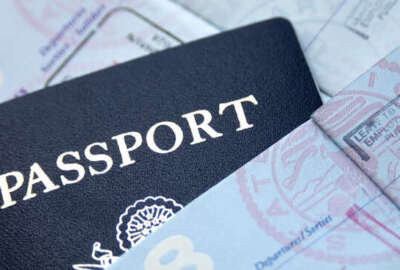Bureaus and offices across the State Department are looking for data scientists to join their ranks and lead several major projects under the agency’s new data strategy.
The State Department, as part of a hiring announcement issued Friday, is looking to hire at least 50 data scientists across its Civil Service workforce over the next year.
The agency is seeking to hire candidates at the GS-13 and GS-14 level. Some prospective hires may require a Secret security clearance or higher.
The State Department planned to move onto the next phase of the job announcement once it received 250 applications, but the agency already received that many on Friday. The agency will now accept up to 400 applications, but will accept applications no later than April 28.
Joel Nantais, the agency’s chief data scientist, said the hiring effort reflects an increasing need for data scientists and builds off the success of other recent hiring pilots.
“It really comes out of the fact that there is an increasing demand for data scientists and data analytics here at the Department of State, so it really is based on a need for the department,” Nantais said on the latest episode of All About Data.
The Office of Personnel Management led a governmentwide data scientist hiring effort last year. Participating agencies received more than 500 applications in less than 48 hours.
The State Department hired about 25-30 data scientists as part of the OPM pilot, more than any other agency that participated.
Much like the OPM-led pilot, the State Department is conducting this hiring effort through a Subject Matter Expert Qualification Assessment (SME-QA).
The U.S. Digital Service developed the SME-QA process to help agencies assess applicants’ qualifications for technical positions. The process has agencies bring in current employees who are experts in a given field to help the human capital office vet and hire candidates.
Once the agency gathers enough applications, subject matter experts will run applicants through a series of steps meant to vet their data science skills.
As part of the SME-QA process, Nantais said applicants go through a skills assessment, a “take-home test” of different data science skills and techniques, which Nantais said is more akin to what a data scientist would experience in the private sector.
“It’s an easier process for applicants, especially those unfamiliar with applying to federal government jobs typically, and we tend to get a higher number of candidates through the process that are actually good fits,” Nantais said.
Candidates who advance through these steps will be interviewed by hiring managers throughout the department.
At least 18 bureaus and offices at the State Department are participating in this initiative, and the work data scientists will tackle, if they get the job, varies depending on where they end up.
New hires will generally work on meeting the goals of the enterprise data strategy. Nantais said those include strategic competition with China, and providing workforce data analysis for the agency’s recently elevated Chief Diversity and Inclusion Officer.
“Not everything within that discussion is a data analytics or data science project, but there’s a lot that can be supported through data analytics and data science. That really gets to the cultural aspect of making sure that we are data-informed and data-driven agency,” Nantais said.
Agencies looking to recruit data scientists have a clearer standard of what a qualified candidate should bring to the job. That’s because OPM late last year issues a new occupation series for data scientists in government.
Nantais said that job series will help the agency recruit and retain in-demand data talent.
“It’s really exciting to see federal hiring and career paths catching up with where the private sector is, and acknowledging that there is a lot of need and demand for these skill sets, and really trying to then build out not just what it looks like to get hired into a position, but what it looks like to have a career in the federal government as a data scientist,” said.
Nantais said the agency is looking for candidates with a variety of backgrounds and skill sets. The agency, he said, already employs many data scientists with backgrounds in social science, foreign policy, international relations and political science — but also have the quantitative and methodological skills needed for data science.
“The Department of State is not a statistical agency. We’re a foreign policy agency, and therefore when we’re looking not just at the data scientists we currently have — but also the data science skills and techniques that we are going to benefit the most from, as well as the data scientists out there that are most likely to be interested in working for the Department of State — it’s not necessarily data scientists who have, very hard statistical or mathematical degrees,” he said.
The agency is looking to make some immediate hires as part of this initiative. However, the agency will refer some applicants that didn’t get a job offer in the first round of hires to similar data scientist vacancies across the department for an extended period.
“We expect this pool of qualified, eligible candidates to be available for many months from now, so that even if a job is not, open now but maybe open three months from now, that hiring manager can easily reach into this pool of candidates, interview from folks that are still available, still interested in working with the Department of State and make a selection from that,” Nantais said.
Copyright
© 2024 Federal News Network. All rights reserved. This website is not intended for users located within the European Economic Area.





